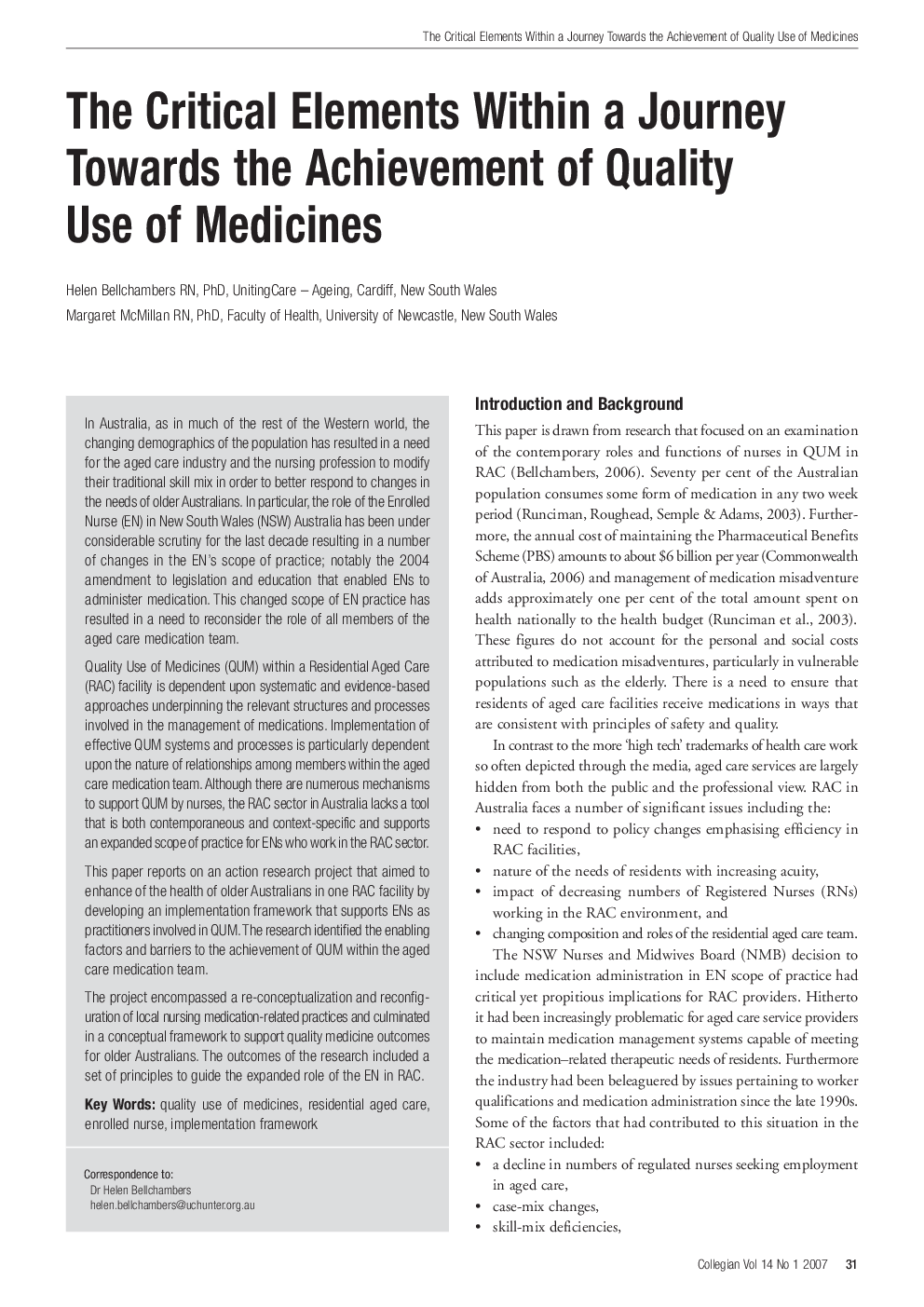| Article ID | Journal | Published Year | Pages | File Type |
|---|---|---|---|---|
| 2646846 | Collegian | 2007 | 6 Pages |
In Australia, as in much of the rest of the Western world, the changing demographics of the population has resulted in a need for the aged care industry and the nursing profession to modify their traditional skill mix in order to better respond to changes in the needs of older Australians. In particular, the role of the Enrolled Nurse (EN) in New South Wales (NSW) Australia has been under considerable scrutiny for the last decade resulting in a number of changes in the EN's scope of practice; notably the 2004 amendment to legislation and education that enabled ENs to administer medication. This changed scope of EN practice has resulted in a need to reconsider the role of all members of the aged care medication team.Quality Use of Medicines (QUM) within a Residential Aged Care (RAC) facility is dependent upon systematic and evidence-based approaches underpinning the relevant structures and processes involved in the management of medications. Implementation of effective QUM systems and processes is particularly dependent upon the nature of relationships among members within the aged care medication team. Although there are numerous mechanisms to support QUM by nurses, the RAC sector in Australia lacks a tool that is both contemporaneous and context-specific and sup ports an expanded scope of practice for ENs who work in the RAC sector.This paper reports on an action research project that aimed to enhance of the health of older Australians in one RAC facility by developing an implementation framework that supports ENs as practitioners involved in QUM. The research identified the enabling factors and barriers to the achievement of QUM within the aged care medication team.The project encompassed a re-conceptualization and reconfiguration of local nursing medication-related practices and culminated in a conceptual framework to support quality medicine outcomes for older Australians. The outcomes of the research included a set of principles to guide the expanded role of the EN in RAC.
